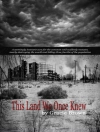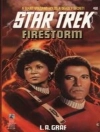In ‘The Last Man, ‘ Mary Shelley crafts a poignant dystopian narrative set in the late 21st century, exploring themes of isolation, mortality, and the fragility of civilization. The novel is distinguished by its rich, introspective prose and philosophical depth, drawing on the Romantic literary tradition that foregrounds individual experience against the backdrop of society and nature. Shelley deftly interweaves elements of science fiction with a tragic vision of humanity’s demise, portraying a world ravaged by plague and societal collapse. The historical context of the work, published in 1826, invites readers to reflect on the anxieties of the post-Napoleonic era and early industrialization, highlighting the tension between progress and human vulnerability. Mary Shelley, often heralded as the mother of science fiction, was profoundly influenced by her life experiences, including the loss of loved ones and her revolutionary upbringing. These elements shaped her existential and social philosophical explorations, culminating in ‘The Last Man.’ As an author who witnessed both the glories and horrors of her age, Shelley adopts a cautionary tone, warning of humanity’s self-destructive tendencies and the inevitable consequences of hubris. Readers seeking a profound and unsettling contemplation of humanity’s future will find ‘The Last Man’ not only a compelling narrative but also a significant commentary on the human condition. Shelley’s masterful blending of personal grief and speculative fiction beckons to those who appreciate literature that does more than entertain; it challenges our perceptions and beckons us to confront uncomfortable truths about our existence.
Tentang Penulis
Mary Shelley, born Mary Wollstonecraft Godwin on August 30, 1797, was a seminal figure in the realm of Gothic literature and is renowned for her significant contribution to English literature as the author of the groundbreaking novel ‘Frankenstein’ (1818). Shelley was the daughter of the philosopher William Godwin and the feminist Mary Wollstonecraft, which perhaps ingrained in her a penchant for the intellectual and unconventional, traits that suffuse her literary work. In 1816, she notably married the poet Percy Bysshe Shelley.
Her novel ‘The Last Man’ (1826) is a work that further exemplifies her literary innovation, offering an apocalyptic narrative of human extinction set in a future world. This dystopian novel is underscored by an exploration of romantic and philosophical themes, evidencing her intellectual heritage and a narrative style that eloquently delves into the despair and isolation of her characters. Her work not only secured her a firm place in the canon of English literature but also reflected the anxieties of her era, grappling with questions about the human condition and societal constructs. Shelley’s contributions have merited scholarly interest and have influenced both her contemporaries and the course of modern science fiction and horror genres. She died on February 1, 1851, but left behind a legacy that continues to inspire and captivate readers and academics alike.












